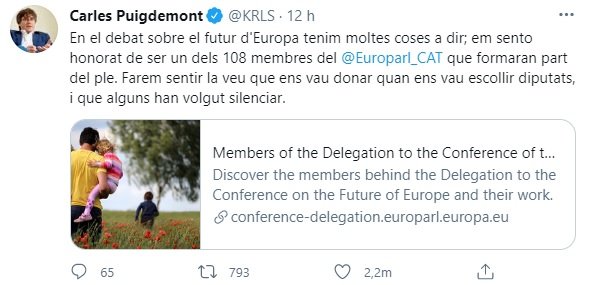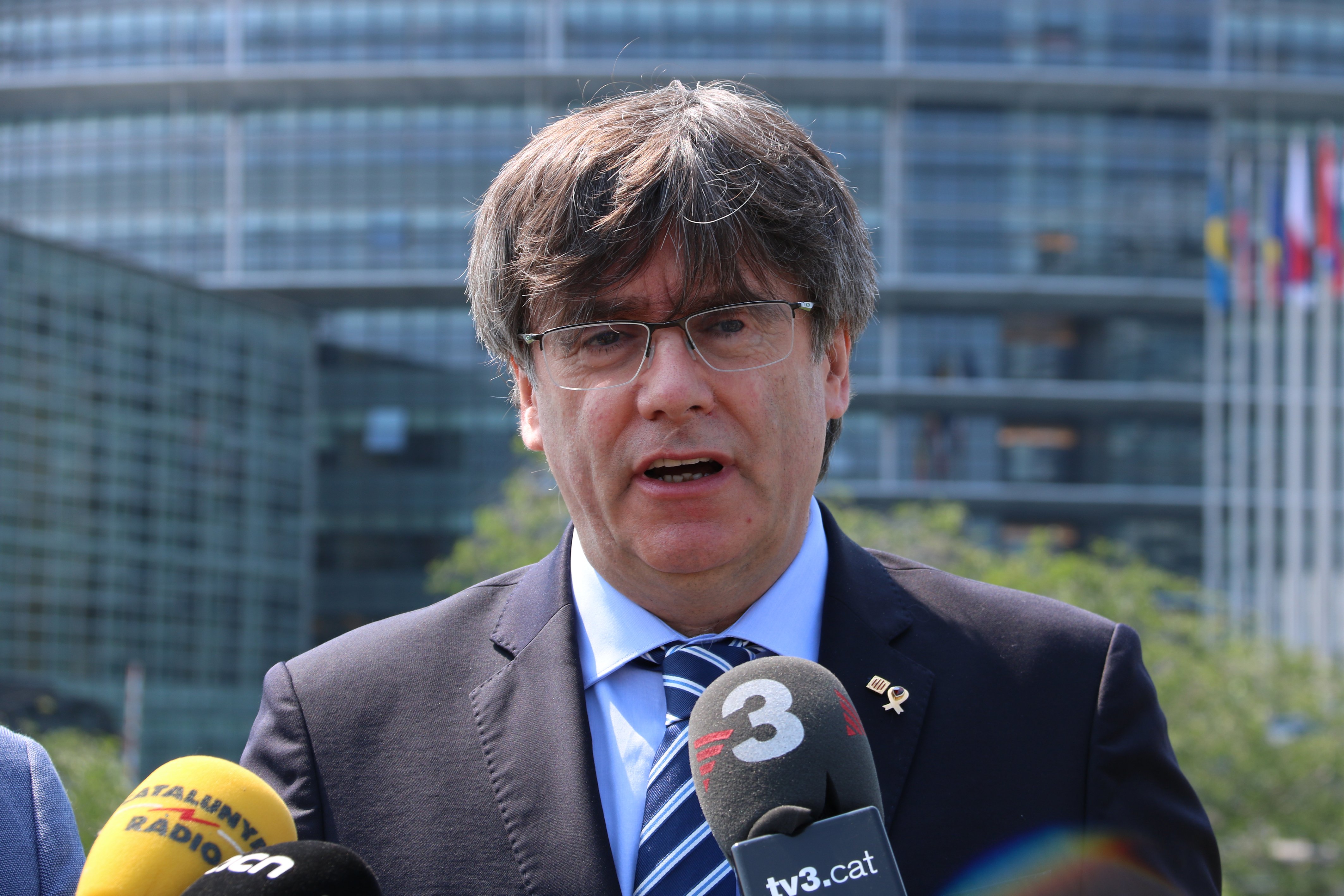Catalan MEP and president in exile Carles Puigdemont has announced in a tweet that he has been chosen to be part of the debate on the future of Europe. "In the debate on the future of Europe we have a lot to say; I am honoured to be one of the 108 members of the European Parliament who will be part of the plenary," he said.
Also among the MEPs chosen to participate in the Conference on the Future of Europe debate are Jordi Solé, of the Catalan Republican Left, and the Spanish Popular Party's leader in Brussels, Dolors Montserrat.

The former president, who led Catalonia to the 2017 referendum and was elected as an MEP by Spanish and Catalan voters when he was already in exile in 2019, indicated that he will take advantage of this debate to "make the voice heard which you gave us when you elected us as deputies, and that some have wanted to silence."
Last week, the General Court of the European Union (EGC) provisionally returned the parliamentary immunity to the three exiled MEPs of the Junts party, Carles Puigdemont, Toni Comín and Clara Ponsatí, while it resolves the substance of their appeal against the European Parliament for waiving their parliamentary protection.
Ahead of the chamber's decision, the vice-president of the EGC stated that the case made by the pro-independence politicians justifies their immunity being maintained until this court of first instance rules definitively on the interim continuation of their immunity status. Thus, the EGC granted Puigdemont, Comín and Ponsatí urgent interim measures, which can be awarded even if the other party's argument has not been heard, if the court believes they are justified.
In the appeal asking for the urgent interim measures, Puigdemont, Comín and Ponsatí warned of the "real and imminent risk" of being arrested and imprisoned, "preventing them from being able to represent European citizens for the rest of their term". In particular, they warned of the risk of being arrested in France now that the European Parliament has resumed plenary sessions at Strasbourg.
Building a more resilient Europe
The Conference on the Future of Europe is an EU initiative aiming to help shape the continent's future in the medium to long-term. With input from both European institutions and civil society - and especially young people - the conference aims to give citizens a greater role in shaping EU policies, improve the Union’s resilience to crises, and create a new public forum for debate on key issues - such as health, climate change, social fairness, digital transformation, the EU’s role in the world, and how to strengthen democratic processes.
Main photo: Exiled Catalan president Carles Puigdemont / ACN

